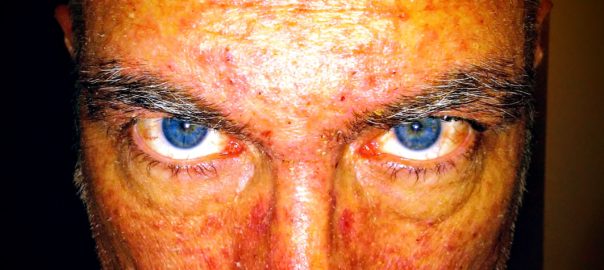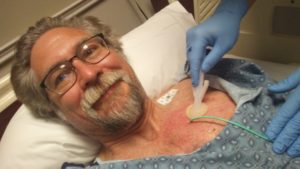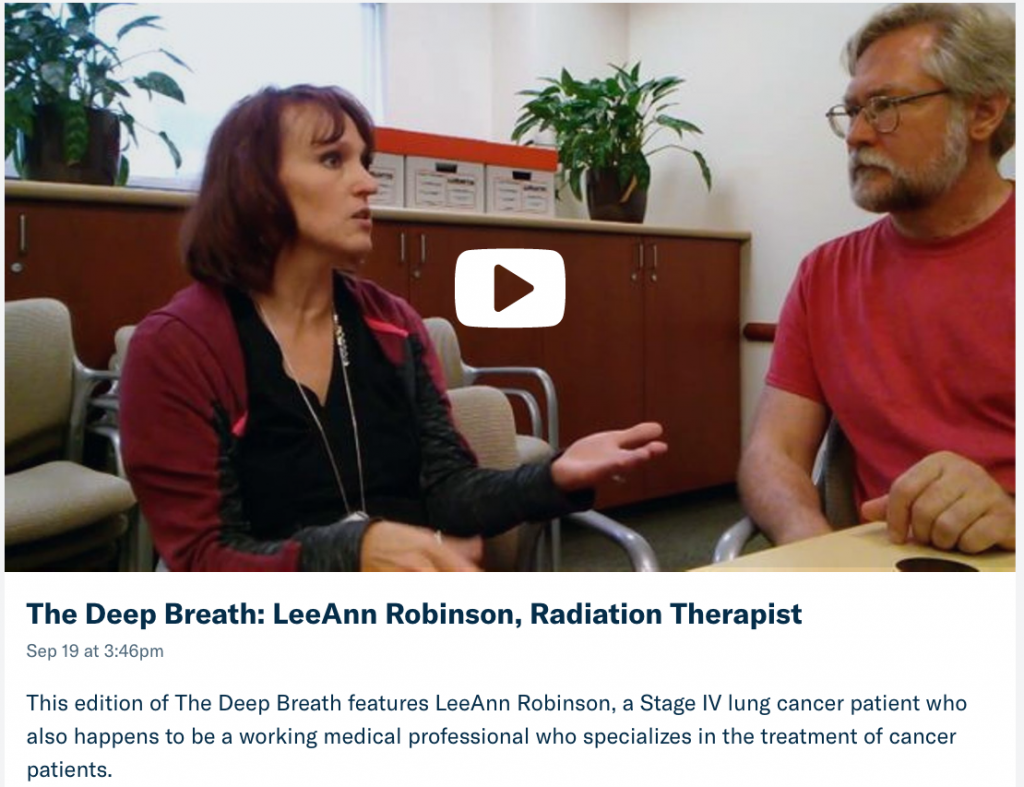Well, it’s time for another needle. I’d been successfully avoiding a lot of these for the past six-ish months, but the afatinib pill I had been taking simply wasn’t working the way we needed it to. (Which is to say, it did not stop the cancer from spreading, much less reduce its presence.) So, on this uncharacteristically rainy Southern California day, I commuted through a maze of side streets to avoid morning rush hour traffic on my way downtown to the university hospital where I am to receive today’s infusion. It’s a far cry from the cozy satellite clinic I had been accustomed to up in Pasadena. I’ve spent the better part of 90 minutes waiting for things to be prepared since I checked in; I’ve wandered the maze of the hospital, searching out a paltry offering of snacks in the lower-level cafeteria and the free coffee in the main waiting room, sitting in various rooms and surfing the free Wi-Fi (but unable to stream Flint Town on Netflix, much to my chagrin).
Here, in the Day Hospital, as it is called, the vibe is wholly different than the spa-like atmosphere of my old chemo haunt. While this is certainly clean and bright, it feels like a hospital. There is nothing aesthetically pleasing about the large room cordoned off by sliding curtains. A few windows along one wall allow a tiny amount of natural light in, but they may be closed off by curtains at any time. Yet the reception staff seems bright and friendly.
The drug I am getting today — ado-trastuzumab emtansine, or Kadcyla — is not a traditional chemotherapy, and there have been some weird holdups in getting it properly scheduled. In part, this is because my use will be slightly off-label. My insurance company refused to approve it — but they also would not deny it, leaving me in a strange limbo where other plans were difficult to make. The hospital pharmacy has been working with the drug manufacturer to cover the costs in case insurance ultimately denied coverage, and we are moving forward with the understanding that, somehow, the medication will get paid for. These concoctions are so expensive that it is unreasonable to expect that patients could actually afford to pay out of pocket, but somehow the system works to cover these costs most of the time. The trick is figuring out how. I am three weeks delayed getting in for this new treatment, which hopefully will be drastically more effective than the pill I had been taking. At least the bar there isn’t very high.
Continue reading Another New Beginning →


